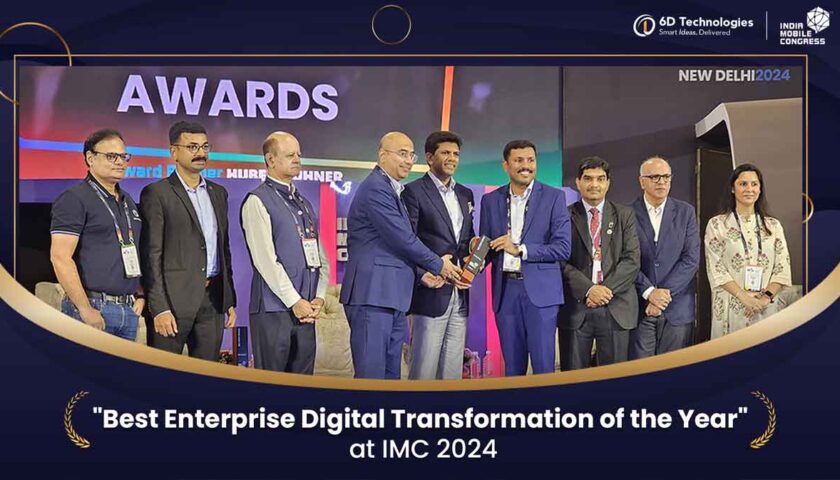Prabhakar Jayakumar
Sr. Director & Global Head, DigitalOcean
How is the data center industry bringing it across the wire and what kind of opportunity DigitalOcean is foreseeing in India?
A lot of the businesses that are coming up, could predominantly have been offline businesses and are trying to have a digital presence. Digital transformation is no longer something that only enterprises are focused on. Everybody wants to have a footprint in the digital world and the cloud makes that easy for them. If you could be a local offline store, you could have something as simple as a website or something more complex as a mobile application or web application for whatever reasons you are doing. The ability to get up and running both the time to market the cost and the amount of effort that is taken to be able to have a digital presence on the cloud is much lesser than traditionally what people would do in case a data center is set up.
I think what is propelling the move towards the cloud are things like the pandemic that have accelerated the adoption of cloud services over the last year and a half. Businesses now need to be online a lot more and even those who never needed a digital presence or were probably somewhat reluctant to do that before the pandemic, now see the value of having a digital presence for themselves and their businesses. So, people like them are leapfrogging and want this transition a lot faster. And hence, there is a lot of adoption for the cloud globally.
Could India be the next hub for the growth of data centers? What kind of growth is seen; is there a demand-supply gap?
I also want to kind of delineate the two of course, data centers are at the core of what the cloud does. All cloud needs data centers to run on, but there is also a lot of upfront up stack software management that happens. Today people are building what you call managed services, at the core, there are servers and hardware that everybody is trying to manage, but people are also trying to abstract a lot of this upfront by creating software that makes management of your infrastructure a lot more seamless. If we look at the developments that are happening in India, a lot of cloud providers, a lot of people who are focused on data center expansion, they are setting up shop in India, uh, predominantly for the reasons of the growth that are happening here.
If we look at the growth in SMBs startups, we are probably in the top five in the world. Since this is a catchment area, the territory has so much to offer in terms of the usage and adoption of the cloud it is, natural that cloud companies want to focus on data center will focus on India and continue to build much more infrastructure, to be able to cater to the demand, not just that comes out of India, but even if compared from our regional neighbouring countries as well. India is already the hub, and we’ll continue to grow in that fashion.
Is security becoming a major concern and how DigitalOcean is keeping business safe, protecting personal and financial data either on individual or national level for backups?
The first one is Data Sovereignty is increasing within countries, including India. Bringing legislation or rules in which data of certain applications, certain domain domains need to be decided within the country. Providers like DigitalOcean ensure that we have a local data center footprint to safeguard the local regulations and local needs. We ensure that we are relevant for the businesses from those domains. There is an increasing trend happening across a lot of other geographies too. So, data sovereignty and kind of complying with the local laws and regulations is something that we certify.
The second component of it is the Security. There are two elements to it, one on the hardware level. DigitalOcean ensures that we are building in any enabling tools – something as straightforward as a firewall to something that we can do at the hardware level.
Can data localization be supported by ensuring storage of sensitive data within countries’ boundaries that can be reduced?
As mentioned earlier, the entire concept of data sovereignty and data localization is the reason why we have a data center in Bangalore because businesses that need to keep data within the country can do so. If we did not have a Bangalore data center that would mean that we would have to keep it elsewhere, but under Bangalore data center, it automatically means that businesses have the check’s ability to store and decide how they build the application architecture such that the businesses are compliant with the local laws of a country.
How DigitalOcean is equipped with newer technologies?
Here we look at two pillars. One is the infrastructure services that we provide and then the managed services that we provide. We provide managed services across three layers; one is the platform as a service (PaaS). Then we have an app platform that makes the transition from a non-digital world to a digital world in terms of having an app straightforward and is a managed service offering. The other two things DigitalOcean offer is managed Kubernetes which is a managed database offering.
To the instruct, there are three pillars that we typically look at is storage, compute, and network. For storage, we provide two flavours of storage – block storage and object storage. Depending on the kind of data customers need to use, they can choose block storage or object storage as per the flexibility to serve the end customers. And these features are available across all data centers.
Data centers have been multi-layered architecture and constantly upgrading security systems to prevent data theft. Share some uniqueness of DO data center in India?
From a Hardware security perspective, we ensure that in a physical location we have our data centers that are compiled by laws. There is a lot of security controls and processes that we put in place, in terms of access to a physical data center. From a software piece features such as firewall and other tools are layered on top of infrastructure makes it difficult for bad actors to fish or investigate data and hence makes it more difficult due to shared responsibility.





